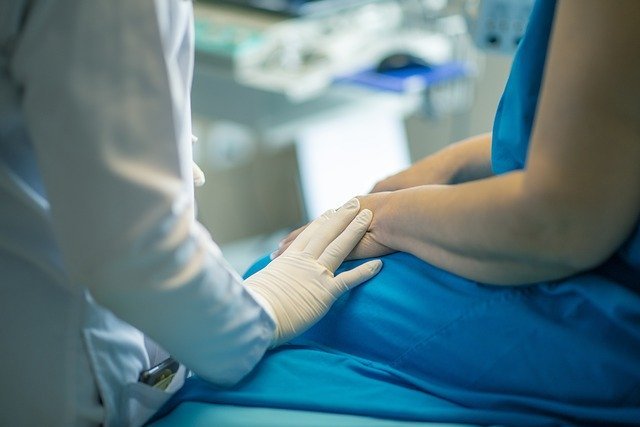
Healthcare practices are coming under increasing pressure worldwide due to the Coronavirus.
Most people are already aware of Coronavirus, yet only have a limited view of what effect it, as with other epidemics, has already begun having on healthcare practices. Having been in communication with staff at First Healthcare Products, the following critical thinking driven article came to mind on how healthcare practices can take steps to overcome challenges brought by Coronavirus and other epidemics.
How Is Coronavirus Impacting The World And Healthcare Practices At Present?
A key issue is that most healthcare practices are already under pressure. Walk in to almost any healthcare practice and you will notice large queues of people, all waiting for treatment. Doctors and other medical practice staff, while not physically running, at least in many cases, hit a caseload long ago which meant they really had little more they could cope with.
In part this has been a case of efficiencies.
Healthcare practices are reliant on funding, as with any business or organization.
So having medical staff with time on their hands, is an inefficiency for a healthcare practice. Yet, the issue comes when the sails of the healthcare practice have been set too close to the wind, and there is no room left for manoeuvre.
Spread Of Coronavirus And Worldwide Impact
With the rapid spread worldwide of the Coronavirus, at this time it has been noted to have spread from China to 25 different countries, with the WHO (World Health Organization) stating “the epidemic constituted a public health emergency of international concern.”
In the U.S. 195 Americans that were evacuated to California are in quarantine, and with 103 confirmed cases in the U.S. and 3 fatalities as of March 3rd 2020.
Outside of China, fatalities have been confirmed in South Korea, Iran, Italy, Japan, Hong Kong, Taiwan, France, Thailand, Australia, San Marion and the Philippines.
While confirmed cases of Coronavirus are quarantined, there is still that 14 day window before symptoms are noticeable. Which with flu and common colds means that healthcare practices have their work cut out, as many who wouldn't have gone to see a doctor with flu, suddenly feel they should be checked in case they have Coronavirus.
Pushing already stretched healthcare practices to, or even beyond, the limit of their capabilities are a critical time.
Healthcare Practices Easing Pressure For More Efficient Patient Healthcare
The reality is that people are often the weakest link.
People suffer from stress and get sick, that includes healthcare practitioners and other supporting staff in medical clinics.
So at times like this, with situations being pushed with the Coronavirus, doing things to ease patient caseload, while also increasing healthcare coverage and case efficiency, becomes very important.
Naturally, there are all the things which from a mental health perspective healthcare professionals should be doing already, using meditation to release stress, working with coaching and therapy to get rid of troubling thoughts and beliefs which restrict them from effective working. Though these things are things that many should be doing already as part of their own health regimen, even if they haven't been.

Using Technology In Healthcare Practices Is Only A Partial Step Forward
Within Western medicine technology has been important for a long time.
Medical devices such as X-ray machines, CAT scanners, and ultrasound imaging are well known and provide doctors and other specialist healthcare personnel with vital information for use in diagnosis and treatment.
Alongside this developments in healthcare practice IT have led to faster access to patient records and admissions, through increasing use and integration of EMR (Electronic Medical Record) or EHR (Electronic Healthcare Record).
Computers and other electronic devices have become increasingly critical as healthcare practices move away from paper records and storage, so that information can be available at the touch of a button. Yet in many practices, access to information is still limited by physical constraints.
While under standard conditions, which for many healthcare personnel are still somewhat hectic, having to go to a PC located on a desk can be OK. The situation now being faced in many clinics and healthcare practices is rather more challenging.
As the WHO has stated, the epidemic constitutes a public health emergency of international concern. Which with rapid spread and increased workload, better ways of providing treatment are required.
At present the weak link in many healthcare practices is that of time. While practices are stretched thin with healthcare staff workload, in both treatment and administration, even though they have various devices such as laptops and desktop PCs to help streamline treatment time. Along with other devices that help with faster diagnosis. The limiting factor for all is that of time.
How Can We Improve Healthcare Treatment To Ease Medical Personnel Workload Due To Situations Such As Coronavirus?
With time being the limiting factor with healthcare, usage of time has effectively become the focus for easing workload for healthcare personnel.
With modernization of I.T. systems already having taken place, on a software level through EMR and other healthcare practice streamlining systems that bring greater workflow efficiencies, it then falls to how healthcare personnel are interacting with those systems, and doing things to minimize downtime. While at the same time, reducing the stress and burden that leads to burnout within those personnel. While cutting downtime can be good, doing so at the expense of stress, with medical staff having to work even harder, just raises a new set of issues, thus actually creating a compounded issue.
With healthcare clinics being pushed harder and harder worldwide due to Coronavirus, whether it be from people concerned as to whether they have contracted it, or medical institutions quarantining and treating those with coronavirus. Actually winning back time for more efficient healthcare provision becomes even more critical.
Decreasing Time In Motion In Order To Increase Healthcare Efficiency
By decreasing time in motion for healthcare staff, time can be saved and put to better use in treating and providing healthcare.
While Healthcare I.T. systems have helped reduce time spent going through paper medical records, and doing other things such as admissions and discharges manually, healthcare professionals still have to move to PCs or devices in order to input vital information.
There are various known advantages for healthcare practices using mobile devices such as laptops and touch pads integrated with healthcare practice I.T. systems, along with other medical devices within the practice or clinic, it becomes possible for more work to be done on the spot. Thus reducing non-productive downtime caused by movement between patients and devices.
Though mobile devices by themselves fail to actually help sufficiently.
Healthcare professionals require more than something to make notes on.
Plus, the weight difference along with ergonomic challenges that present health and safety issues, effectively increase pressure on healthcare practice staff. Holding and tapping out notes on touch pads is challenging enough at times, holding a laptop on one arm while navigating through EMRs and updating notes, while also prescribing treatment, is far from quick and easy.
As such, increasing issues of RSI (Repetitive Strain Injury).
Which when healthcare practices are under pressure from increased patient numbers due to epidemics such as Coronavirus, is the last thing needed. Due to the fact that conditions such as RSI cause healthcare staff with such conditions to work at reduced rates, or even worse take time off for recovery.
As such, adaptation of working practices, creating more mobile conditions for working, which increase patient care efficiency, while also reducing stress experienced by healthcare staff, has to be the way forward.
Which brings us to a revision of the main question.
How Can Healthcare Practice Efficiency Be Improved While Also Enhancing Working Conditions For Healthcare Personnel And Reducing Stress?
In reality there are going to be various epidemics, whether it is Coronavirus now, or a different epidemic in the future. By embracing truly mobile working, beyond just having mobile devices such as touch pads and laptops that integrate with healthcare I.T. systems, higher efficiencies can be attained. While also enhancing working conditions for healthcare practice staff.
With healthcare practice staff needing a variety of devices, instruments, and sundries while making rounds and providing treatment, things such as mobile workstations provide opportunity for enhancing efficiency whilst also enhancing the ergonomics of working with mobile devices.
Anyone who has used mobile devices for work knows how uncomfortable using them can become. Humans were never designed for how static life has become in terms of modern working practices, sitting still, or maintaining single postures for extended periods. Humans function best when variation in movement is involved. Holding touch pads, or laptops while typing notes is far from friendly for musculoskeletal structures.
Add to that increasing sense of urgency from working in healthcare centers during epidemics such as Coronavirus, and stress moves to a whole new level.
Use of mobile workstations brings notable mitigation of ergonomic challenges in using mobile devices which help speed up healthcare treatment, thus easing workload burden on healthcare staff. Especially when tensions are running higher from situations such as coronavirus, or other viral epidemics. Thus increasing healthcare efficiency whilst improving working conditions.
Combining Mobile Workstation Usage With SSO For Greater Impact On Healthcare Efficiency
SSO (Single Sign On) is a simple technology, which utilizes authentication to increase information security. It also brings benefits in terms of time savings.
According to a study done by Christus Health in Irving, TX, “The reduction of total clinician login time over the 7 day period showed a net gain of 168.3 h per week of clinician time – 28.1 h (2.3 shifts) per facility per week.” All of which came from use of SSO.
When combined with use of mobile devices and mobile workstations, time becomes saved in multiple ways, while also ensuring good working ergonomics for healthcare practice staff.
Which provides a definite win when faced with epidemics like coronavirus, where time is more critical than ever, and stress levels are raised.
How Is Modernization Of Healthcare Practices Vital For Coronavirus Care?
Because it helps healthcare personnel work more efficiently, while helping minimize their stress levels. Thus enabling them to treat more patients, which by extension helps reduce risk to life from epidemics such as coronavirus.
In What Simple Ways Can Practices Improve Healthcare Treatment Processes To Ease Medical Personnel Workload Due To Situations Such As Coronavirus?
Through the use of mobile devices, paired with suitable mobile workstations, along with the use of time saving technology such as SSO, significant improvements in healthcare delivery can happen. Allowing healthcare personnel to increase the number of patients they can attend to during the course of their rounds. Thus, modernization of healthcare practices is vital to providing better healthcare coverage during epidemics such as Coronavirus.